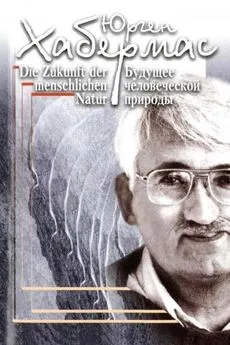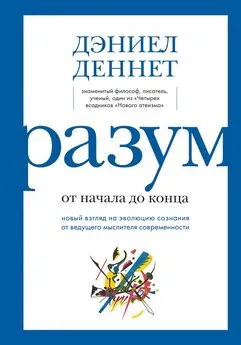Джеффри Миллер - Соблазняющий разум [Как выбор сексуального партнера повлиял на эволюцию человеческой природы] [litres]
- Название:Соблазняющий разум [Как выбор сексуального партнера повлиял на эволюцию человеческой природы] [litres]
- Автор:
- Жанр:
- Издательство:Литагент Corpus
- Год:2020
- Город:Москва
- ISBN:978-5-17-982778-8
- Рейтинг:
- Избранное:Добавить в избранное
-
Отзывы:
-
Ваша оценка:
Джеффри Миллер - Соблазняющий разум [Как выбор сексуального партнера повлиял на эволюцию человеческой природы] [litres] краткое содержание
Соблазняющий разум [Как выбор сексуального партнера повлиял на эволюцию человеческой природы] [litres] - читать онлайн бесплатно ознакомительный отрывок
Интервал:
Закладка:
Kondrashov A. S. Deleterious mutations and the evolution of sexual reproduction . Nature. 1988a; 336: 435–440.
Kondrashov A. Deleterious mutations as an evolutionary factor. III. Mating preference and some general remarks . Journal of Theoretical Biology. 1988b; 131: 487–496.
Kondrashov A. Contamination of the genomes by very slightly deleterious mutations: Why have we not died 100 times over? Journal of Theoretical Biology. 1995; 175: 583–594.
Krebs J. R., Davies N. B. (eds.). Behavioral ecology: An evolutionary approach (4th ed.). Oxford: Blackwell Scientific, 1997.
Krebs J. R., Dawkins R. Animal signals: Mind reading and manipulation // J. R. Krebs & N. B. Davies (eds.). Behavioral ecology: An evolutionary approach (2nd ed.). Oxford: Blackwell Scientific, 1984.
Kreps D. Game theory and economic modelling . Oxford University Press, 1990.
Krings M., Stone A., Schmitz R. W., Krainitzki H., Stoneking M., Paabo S. Neanderthal DNA sequences and the origin of modern humans . Cell. 1997; 90: 19–30.
Kuklick B. The rise of American philosophy: Cambridge, Massachusetts, 1860–1930. New Haven, CT: Yale University Press, 1977.
Lambert D. M., Spencer H. G. (eds.). Speciation and the recognition concept: Theory and application . Baltimore, MD: Johns Hopkins University Press, 1995.
Lancaster J. B. A feminist and evolutionary biologist looks at women . Yearbook of Physical Anthropology. 1991; 34: 1–11.
Landau M. Narratives of human evolution . New Haven, CT: Yale University Press, 1991.
Lande R. Models of specification by sexual selection on polygenic characters . Proceedings of the National Academy of Sciences (USA). 1981; 78: 3721–3725.
Lande R. Genetic correlation between the sexes in the evolution of sexual dimorphism and mating preferences // J. W. Bradbury & M. B. Andersson (eds.). Sexual selection: Testing the alternatives. New York: John Wiley, 1987.
Langlois J. H., Roggmann L. A., Musselman L. What is average and what is not average about attractive faces? Psychological Science. 1994; 5: 214–220.
Layton R. The anthropology of art (2nd ed.). Cambridge University Press, 1991.
Lee R. B. The!Kung San: Men, women, and work in a foraging society . Cambridge University Press, 1979.
Lee R. B., DeVore I. (eds.). Man the hunter . Chicago: Aldine, 1968.
Lenain T. Monkey painting . London: Reaktion Books, 1997.
Lieberman P. Uniquely human: The evolution of speech, thought, and selfless behavior . Cambridge, MA: MIT Press, 1991.
Locke J. The devoicing of society: Why we don’t talk to each other any more . New York: Simon & Schuster, 1998.
Loehlin J. C. Genes and environment in personality development . Newbury Park, CA: Sage, 1992.
Lovejoy C. O. The origin of man . Science. 1981; 211: 341–350.
Low B. S. Sexual selection and human ornamentation // N. A. Chagnon & W. Irons (eds.). Evolutionary biology and human social behavior. Boston: Duxbury Press, 1979.
Low B. S., Alexander R. M., Noonan K. M. Human hips, breasts, and buttocks: Is fat deceptive? Ethology and Sociobiology. 1987; 8: 249–257.
Lubinski D., Benbow C. P. Gender differences in abilities and preferences among the gifted: Implications for the math-science pipeline . Current Directions in Psychological Science. 1992; 1(2): 61–66.
Ludvico L. R., Kurland J. A. Symbolic or not-so-symbolic wounds: The behavioral ecology of human scarification . Ethology and Sociobiology. 1995; 16: 155–172.
Lumsden C. J., Wilson E. O. Genes, mind, and culture . Cambridge, MA: Harvard University Press, 1981.
Lykken D. T. The antisocial personalities . Hillsdale, NJ: Erlbaum, 1995.
Lynch M., Walsh B. Genetics and analysis of quantitative traits . Sunderland, MA: Sinauer, 1998.
MacDonald K. The establishment and maintenance of socially imposed monogamy in western Europe . Politics and the Life Sciences. 1995; 14: 3–23.
Mackintosh N. Intelligence in evolution // J. Khalfa (ed.). What is intelligence? Cambridge University Press, 1994.
Maes P. A bottom-up mechanism for behavior selection in an artificial creature // J. A. Meyer & S. W. Wilson (eds.). From animals to animats. Cambridge, MA: MIT Press, 1991.
Manning J. T., Scutt D., Whitehouse G. H., Leinster S. J. Breast asymmetry and phenotypic quality in women . Evolution and Human Behavior. 1997; 18: 1–13.
Marcuse H. Eros and civilization: A philosophical inquiry into Freud . London: Routledge & Kegan Paul, 1956.
Margulis L., Sagan D. Mystery dance: On the evolution of human sexuality . New York: Summit Books, 1991.
Martin R. D., Willner L. A., Dettling A. The evolution of sexual size dimorphism in primates // R. V. Short & E. Balaban (eds.). The differences between the sexes. Cambridge University Press, 1994.
Mascie-Taylor C. G. N. Assortative mating from psychometric characters // C. G. N. Mascie-Taylor & A. J. Boyce (eds.). Human mating patterns. Cambridge University Press, 1988.
Matthews G., Deary I. J. Personality traits . Cambridge University Press, 1998.
May R. M. How many species inhabit the earth? Scientific American. 1992; 267(4): 42–48.
Maynard Smith J. Fertility, mating behavior and sexual selection in Drosophila subobscura . Journal of Genetics. 1956; 54: 261–279.
Maynard Smith J. The evolution of sex . Cambridge University Press, 1978.
Maynard Smith J. Evolution and the theory of games . Cambridge University Press, 1982.
Maynard Smith J. Sexual selection, handicaps, and true fitness . Journal of Theoretical Biology. 1985; 115: 1–8.
Maynard Smith J. Evolutionary genetics (2nd ed.). Oxford University Press, 1998.
Maynard Smith J., Szathmary E. The major transitions in evolution . Oxford: W. H. Freeman, 1995.
Mayr E. One long argument: Charles Darwin and the genesis of modern evolutionary thought . Cambridge, MA: Harvard University Press, 1991.
Mealey L. The sociobiology of sociopathy: An integrated evolutionary model . Behavioral and Brain Sciences. 1995; 18: 523–599.
Michod R. E. Eros and evolution: A natural philosophy of sex . New York: Addison-Wesley, 1995.
Michod R. E., Hasson O. On the evolution of reliable indicators of fitness . American Naturalist. 1990; 135: 788–808.
Michod R. E., Levin B. R. (eds.). The evolution of sex: An examination of current ideas . Sunderland, MA: Sinauer, 1988.
Miller E. E. Could nonshared environmental variation have evolved to assure diversification through randomness? Evolution and Human Behavior. 1997; 18: 195–221.
Miller G. A. The science of words . San Francisco: W. H. Freeman/Scientific American, 1996.
Miller G. F. Evolution of the human brain through runaway sexual selection: The mind as a protean courtship device ( 2 vols) . Ph.D. thesis, Psychology Department, Stanford University, 1993.
Miller G. F. Beyond shared fate: Group-selected mechanisms for cooperation and competition in fuzzy, fluid vehicles . Behavioral and Brain Sciences. 1994a; 17(4): 630–631.
Miller G. F. Exploiting mate choice in evolutionary computation: Sexual selection as a process of search, optimization, and diversification // T. C. Fogarty (ed.). Evolutionary Computing. Berlin: Springer-Verlag, 1994b.
Miller G. F. Political peacocks . Demos Quarterly. 1996; 10: 9–11.
Miller G. F. Protean primates: The evolution of adaptive unpredictability in competition and courtship // A. Whiten & R. W. Byrne (eds.). Machiavellian intelligence II. Cambridge University Press, 1997a.
Miller G. F. Mate choice: From sexual cues to cognitive adaptations // G. R. Bock & G. Cardew (eds.). Characterizing human psychological adaptations. New York: John Wiley, 1997b.
Miller G. F. How mate choice shaped human nature: A review of sexual selection and human evolution // C. Crawford & D. Krebs (eds.). Handbook of evolutionary psychology. Mahwah, NJ: Erlbaum, 1998a.
Miller G. F. Review of The handicap principle by Amotz Zahavi . Evolution and Human Behavior. 1998b; 19(5): 343–347.
Miller G. F. Waste is good . Prospect. 1999a; Feb.: 18–23.
Miller G. F. Sexual selection for cultural displays // R. Dunbar et al. (eds.). The evolution of culture. Edinburgh University Press, 1999b.
Miller G. F. Evolution of human music through sexual selection // N. L. Wallin et al. (eds.). The origins of music. Cambridge, MA: MIT Press, 1999c.
Miller G. F. Mental traits as fitness indicators: Expanding evolutionary psychology’s adaptationism . Annals of the New York Academy of Sciences. 2000a.
Miller G. F. Sexual selection for intelligence-indicators // J. Goode (ed.). The nature of intelligence. New York: John Wiley, 2000b.
Miller G. F., Cliff D. Protean behavior in dynamic games: Arguments for the co-evolution of pursuit-evasion tactics in simulated robots // D. Cliff et al. (eds.). From Animals to Animats 3. Cambridge, MA: MIT Press, 1994.
Miller G. F., Todd P. M. Evolutionary wanderlust: Sexual selection with directional mate preferences // J.-A. Meyer et al. (eds.). From Animals to Animats 2. Cambridge, MA: MIT Press, 1993.
Miller G. F., Todd P. M. The role of mate choice in biocomputation: Sexual selection as a process of search, optimization, and diversification // W. Banzaf & F. Eeckman (eds.). Evolution and biocomputation. Berlin: Springer-Verlag, 1995.
Miller G. F., Todd P. M. Mate choice turns cognitive . Trends in Cognitive Sciences. 1998; 2: 190–198.
Mitchell M. An introduction to genetic algorithms . Cambridge, MA: MIT Press, 1998.
Mithen S. The prehistory of the mind: A search for the origins of art, religion, and science . London: Thames & Hudson, 1996.
Mithen S. (ed.). Creativity in human evolution and prehistory . London: Routledge, 1998.
Moller A. P. Sexual selection and the barn swallow . Oxford University Press, 1994.
Moller A. P., Alatalo R. V. Good-genes effects in sexual selection . Proceedings of the Royal Society (London) B. 1999; 266: 85–91.
Moller A., Soler M., Thornhill R. Breast asymmetry, sexual selection, and human reproductive success . Ethology and Sociobiology. 1995; 16: 207–216.
Moller A. P., Swaddle J. P. Asymmetry, developmental stability and evolution . Oxford University Press, 1998.
Montagu A. Growing young . Westport, CT: Bergin & Garvey, 1989.
Morris D. The biology of art . New York: Knopf, 1962.
Morris D. The naked ape . New York: Dell, 1967.
Morris D. Bodywatching: A field guide to the human species . New York: Crown Books, 1985.
Nasar S. A beautiful mind. New York: Simon & Schuster, 1998.
Neisser U. et al. Intelligence: Knowns and Unknowns . American Psychologist. 1996; 51: 77–101.
Neuringer A. Can people behave “randomly”? The role of feedback. Journal of Experimental Psychology: General. 1986; 115(1): 62–75.
Neuringer A., Voss C. Approximating chaotic behavior . Psychological Science. 1993; 4(2): 113–119.
Nietzsche F. The will to power. New York: Vintage, 1968. (Trans. W. Kaufmann & R. J. Hollingdale from Nietzsche’s notebooks, 1883–1888.)
Читать дальшеИнтервал:
Закладка:
![Обложка книги Джеффри Миллер - Соблазняющий разум [Как выбор сексуального партнера повлиял на эволюцию человеческой природы] [litres]](/books/1070954/dzheffri-miller-soblaznyayuchij-razum-kak-vybor-seksu.webp)









